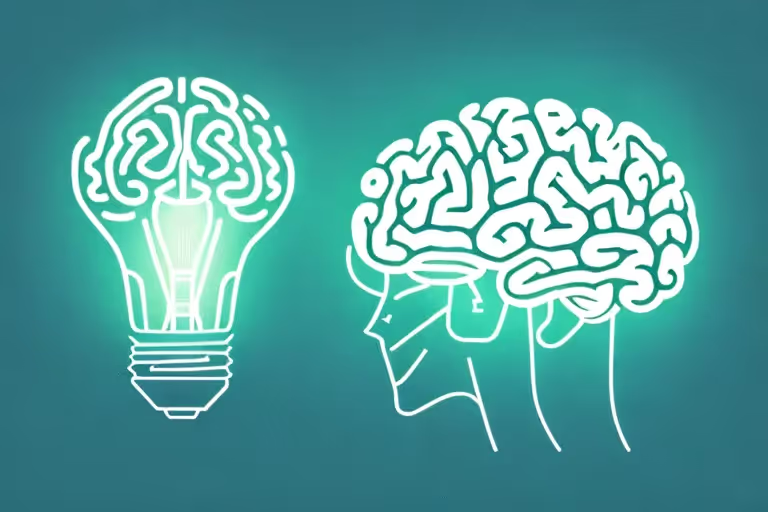Anxiety can have a profound impact on an individual's life, affecting their daily activities, relationships, and overall well-being. Fortunately, there are medications available to help manage anxiety symptoms, and one such medication is Lexapro. If you're considering starting Lexapro for anxiety, it's natural to wonder how long it will take for the medication to start working and alleviate your symptoms. In this article, we will explore the timeline of Lexapro's effects on anxiety, factors that can influence its effectiveness, and potential side effects to be aware of.
Understanding Anxiety and Its Impact
Anxiety is a complex and often debilitating mental health condition characterized by feelings of excessive worry or fear. It can manifest in various ways, including general anxiety disorder, panic disorder, social anxiety disorder, and specific phobias. Regardless of the specific subtype, anxiety can significantly impact an individual's life, making it challenging to function in day-to-day activities, maintain relationships, or achieve personal goals.
Living with anxiety can be an overwhelming experience. The constant worry and fear can consume a person's thoughts, making it difficult to focus on anything else. Simple tasks that others may take for granted, such as going to the grocery store or attending social events, can become daunting challenges for individuals with anxiety.
One of the most challenging aspects of anxiety is that it can affect people in different ways. Some individuals may experience panic attacks, which are sudden and intense episodes of fear that can be accompanied by physical symptoms such as a rapid heartbeat, sweating, trembling, and shortness of breath. These panic attacks can be triggered by specific situations, such as public speaking or flying, or they may occur without any apparent reason.
What is Anxiety?
Anxiety is more than just feeling stressed or nervous in certain situations. It is a persistent and excessive worry or fear that can interfere with daily life. It can make even the simplest tasks seem insurmountable and leave individuals feeling overwhelmed and exhausted.
When anxiety takes hold, it can be challenging to break free from its grip. The worry and fear can become all-consuming, making it difficult to think clearly or make rational decisions. It can feel like being trapped in a never-ending cycle of negative thoughts and emotions.
How Anxiety Affects Your Life
Living with anxiety can have a profound impact on various aspects of life. The constant worrying and fear can lead to difficulties in concentrating, making decisions, and performing well academically or professionally. Simple tasks can become overwhelming, and individuals may find themselves avoiding situations that trigger their anxiety.
Relationships may also suffer as anxiety can make it challenging to establish and maintain connections with others. The fear of judgment or rejection can lead to social isolation, further exacerbating feelings of anxiety and loneliness.
Furthermore, anxiety can contribute to physical health problems. The constant state of stress and worry can take a toll on the body, leading to headaches, digestive issues, and sleep disturbances. The lack of quality sleep can further worsen anxiety symptoms, creating a vicious cycle that is difficult to break.
It is important to remember that anxiety is a real and valid mental health condition. It is not a sign of weakness or a character flaw. Seeking professional help and support is essential in managing anxiety and improving overall well-being.
Introduction to Lexapro
Lexapro is a medication that belongs to a class of drugs known as selective serotonin reuptake inhibitors (SSRIs). It is commonly prescribed to treat anxiety disorders, depression, and certain other mental health conditions. By increasing the levels of serotonin, a neurotransmitter in the brain, Lexapro helps regulate mood and alleviate symptoms of anxiety.
Lexapro, known generically as escitalopram, is a prescription medication approved by the Food and Drug Administration (FDA) for the treatment of generalized anxiety disorder and major depressive disorder. It is available in tablet form and is typically taken once a day.
When it comes to understanding how Lexapro works, it is important to dive into the mechanisms of selective serotonin reuptake inhibitors. SSRIs work by selectively blocking the reuptake of serotonin, a neurotransmitter responsible for regulating mood. Serotonin is involved in various functions in the body, including the regulation of mood, sleep, appetite, and social behavior.
By preventing serotonin from being reabsorbed into nerve cells, Lexapro increases the concentration of serotonin in the brain. This increased amount of serotonin helps to restore the balance of chemicals in the brain, which can improve mood and reduce anxiety symptoms. It is important to note that the exact mechanism of action of Lexapro and other SSRIs is not fully understood, but it is believed to involve complex interactions between neurotransmitters, receptors, and brain circuits.
Lexapro is considered to be a relatively safe and well-tolerated medication. However, like any medication, it may cause side effects in some individuals. Common side effects of Lexapro include nausea, dizziness, drowsiness, insomnia, and sexual dysfunction. It is important to discuss any concerns or potential side effects with a healthcare provider before starting Lexapro.
In addition to its primary use in treating anxiety disorders and depression, Lexapro has also shown promise in the treatment of other conditions. Research has suggested that Lexapro may be effective in reducing hot flashes in menopausal women, improving symptoms of obsessive-compulsive disorder (OCD), and helping with certain types of chronic pain.
It is important to note that Lexapro is not a cure for mental health conditions, but rather a tool that can help manage symptoms. It is often used in conjunction with therapy and other interventions to provide comprehensive treatment for individuals with anxiety or depression.
In conclusion, Lexapro is a medication that belongs to the class of selective serotonin reuptake inhibitors. It works by increasing the levels of serotonin in the brain, which helps regulate mood and alleviate symptoms of anxiety. While it is primarily used for the treatment of anxiety disorders and depression, it may also have potential benefits in other conditions. It is important to work closely with a healthcare provider to determine the appropriate use of Lexapro and to monitor for any potential side effects.
The Timeline of Lexapro for Anxiety
It's important to note that the effects of Lexapro can vary from person to person, and it may take some time before noticeable improvements in anxiety symptoms are observed. Generally, individuals may start experiencing the initial effects of Lexapro within a few weeks of starting the medication.
Initial Effects of Lexapro
During the first few weeks of starting Lexapro, some individuals may begin to notice a reduction in anxiety symptoms, such as decreased feelings of worry, fear, and restlessness. However, it is important to remember that everyone's response to medication is unique, and it may take longer for some individuals to experience the initial benefits of Lexapro.
Long-term Effects of Lexapro
After the initial effects, it may take several more weeks or even months for the full benefits of Lexapro to be realized. It's important to continue taking the medication as prescribed, even if you do not notice immediate improvements. Over time, Lexapro helps to stabilize serotonin levels, improve mood, and reduce anxiety symptoms. It is essential to maintain open communication with your healthcare provider throughout the treatment process to monitor your progress and make any necessary adjustments to the dosage or treatment plan.
Factors Influencing How Long Lexapro Takes to Work
Several factors can influence how long it takes for Lexapro to start working and ease anxiety symptoms. Understanding these factors can help set realistic expectations and provide insights into individual responses to the medication.
Dosage and Frequency
The dosage and frequency of Lexapro can play a role in how quickly the medication takes effect. Your healthcare provider will determine the appropriate dosage based on your specific needs, taking into account factors such as the severity of your anxiety symptoms and any underlying medical conditions. It's crucial to follow the prescribed dosage and frequency and avoid adjusting the medication without consulting your healthcare provider.
Individual Biological Factors
Each individual's biological makeup is unique, and this can influence how long it takes for Lexapro to work. Factors such as metabolism, liver function, and genetic variations can affect how the body processes the medication and how quickly it produces its desired effects. Additionally, other medications, substances, or supplements being taken concurrently can interact with Lexapro and impact its efficacy.
Potential Side Effects of Lexapro
Like any medication, Lexapro can cause side effects, although not everyone experiences them. It's important to be aware of the possible side effects and discuss any concerns with your healthcare provider.
Common Side Effects
Common side effects of Lexapro may include nausea, headache, insomnia, drowsiness, dry mouth, dizziness, and sexual dysfunction. Most of these side effects are mild and tend to resolve on their own within a few weeks. If they persist or become bothersome, it is essential to contact your healthcare provider for further guidance.
Serious Side Effects
While uncommon, Lexapro can also cause more severe side effects that require immediate medical attention. These include symptoms such as allergic reactions, suicidal thoughts, irregular heartbeat, seizures, and changes in appetite or weight. It's important to seek immediate medical help if you experience any of these symptoms.
In conclusion, Lexapro is an effective medication for managing anxiety symptoms. While it may take time to experience the full benefits, the initial effects can often be noticed within a few weeks. Factors such as dosage and individual biological factors can influence how long it takes for Lexapro to work. It's also important to be aware of potential side effects and speak with a healthcare provider if any concerns arise. Remember, each person's response to medication is unique, and it's essential to maintain open communication with your healthcare provider throughout your treatment journey.
For additional support in managing anxiety and your overall mental well-being, consider using the Aura Health App. With a variety of mindfulness and meditation exercises, the Aura Health App can help reduce stress, promote relaxation, and improve sleep. Download the Aura Health App today to unlock a greater sense of calm and peace in your daily life.
Aura is Your All In One App for Meditation, Mindfulness Wellbeing
Find peace every day with one app for your whole well-being. There is no one-size-fits-all solution to mental well-being. Aura is the first all-in-one wellness app that learns how to best help you. Discover an endless library of expert-created tracks for your well-being, all taught by the world’s best coaches, therapists, and storytellers. With Aura's personalized recommendations, you can find peace every morning, day and night.



.webp)






.avif)

%20(1).avif)


.avif)
.avif)
.webp)


.avif)


















































































































.avif)

















.svg)









